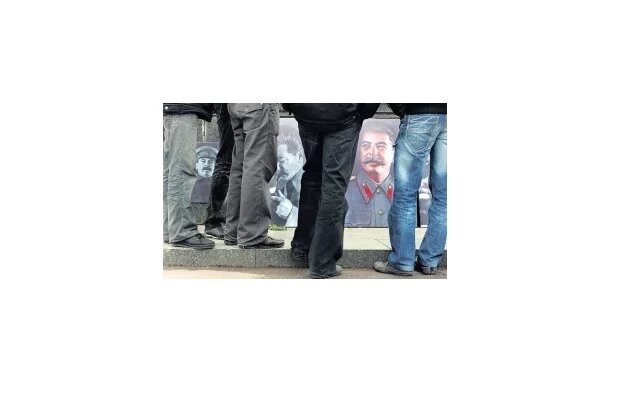
On Wednesday, 15 December 2010, the South Caucasus Regional Office of the Heinrich Boell Foundation hosted a public debate on “Coming to Terms with Georgia’s Soviet Past”.
The following speakers gave presentations:
- Toomas Lukk – Estonian Ambassador to Georgia.
- Lasha Bakradze – Historian, Professor at the Ilia State University, Soviet Past Research Laboratory.
- Giorgi Kldiashvili – Historian, Professor at the Tbilisi State University after Ivane Javakhishvili. Director of the Institute for Development of Freedom of Information.
- Tornike Sharashenidze – Professor at the Georgian Institute of Public Affairs, Executive Secretary, the State Commission for Historical Truth.
The debate was moderated by Gogi Gvakharia.
The debate hosted by the HBF on the issue of rethinking the Soviet past and the Stalinism era attracted unprecedented public interest. The debate was attended by more than 150 persons. All participants of the discussion unequivocally noted that the Georgian society became ready to discuss this issue. Participants asked a lot of questions concerning the phenomenon of Stalinism, removal of the Stalin statue from the center of Gori, prohibition of Soviet symbolic in Georgia, the process of lustration and experience of Baltic and Eastern European countries concerning de-sovietization. A question was asked on how the Georgian society in today’s Georgia is still influenced by the Soviet system and Stalinism.
Has the Georgian society rejected myths and is it ready to assess and study historical documents of the Soviet past? Is the society ready to analyze this past? – Speakers had diverging answers to these questions. At the end of the discussion speakers also stressed that our society will need another 20 years in order to realistically assess its Soviet past.
The discussion was opened by Iris Kempe, Director of the HBF South Caucasus Office. She highlighted an importance of debating and discussing on this issue and said that there is no democratic future without rethinking and assessing the past.
Toomas Lukk, Estonian Ambassador to Georgia, spoke about Estonian experience and informed the public how the Estonian society assessed the Stalinism problem. According to the Ambassador, the name of Stalin in the Eastern Europe is connected to the bloody terror. He also spoke about recent achievements of Georgia. He especially highlighted importance of opening the archive of the Ministry of Interior Affairs and said that the existence of such archive indicates that the country is ready to speak about its past.
Tornike Sharashenidze informed participants about the work of the State Commission for Historical Truth. He said that the theme and topics discussed at the commission were very concrete and had a goal to compile and analyze facts on Georgia-Russian relations starting from the Georgievsk Treaty, including the period of 1990 and to the period of independence Georgia.
Historian Lasha Bakradze, who represented Soviet Past Research Laboratory (SOVLAB) spoke about goals and activities of this organization. Bakradze said he was happy to see so many people interested and attending the discussion at the HBF. He also noted that several years ago the Georgian society was not interested in such issues. Bakradze spoke about the calendar issued by the SOVLAB and also, the route map drafted by SOVLAB historians. This route map includes 25 buildings in Tbilisi that were connected to the Soviet terror and past. He also spoke about the German experience, how Germans treat their past and honor victims of repressions.
Giorgi Kldiashvili, Director of the Institute for Development of Freedom of Information and the member of the SOVLAB analyzed the phenomenon of Stalinism, the essence of Sovietology in Georgia and in the West. He stressed that after opening the archive, interested individuals have all necessary conditions and possibilities in Georgia to research documents related to this period to objectively assess Georgia’s Soviet past and history.
Full text of the debate in Georgian (pdf, 107 KB)